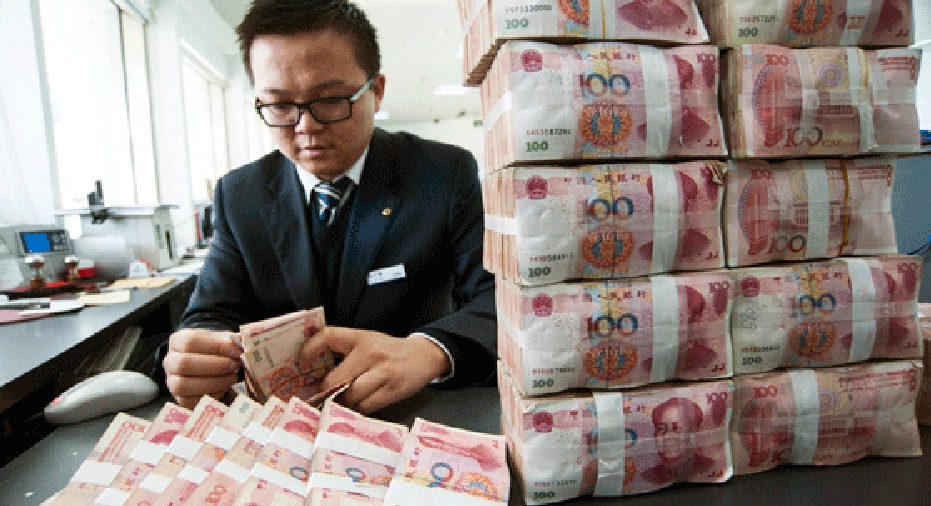China Delivers Sucker Punch to U.S. in Currency Wars

For the first time in 20 years, the Chinese devalued the yuan. While investors have become accustomed to government officials tinkering with the stock market in recent weeks, the move to jump start the economy by the People’s Bank of China (PBOC) caught many off guard. Although U.S. reaction was knee-jerk with the dollar strengthening, it only fueled a trend already in place thanks to Japan and the Eurozone.
In October, the Bank of Japan (BOJ) surprised global markets with a massive $1.4 trillion stimulus and in January the European Central Bank (ECB) did something similar with its $1 trillion bond buying stimulus program. Since then those currencies have all tumbled vs. the U.S. dollar, which makes it cheaper for trading partners to buy goods in these countries over the U.S.
It may also be creating a profit problem for U.S. multinationals who automatically earn less due to currency fluctuations. U.S. profit growth for S&P 500 companies in the 2Q ’15 is now on the decline according to FactSet who also notes, if this holds, it will be the first year-over-year decrease in earnings since 3Q 2012. The currency hit is not lost on corporate executives. The word “currency” was the term cited by the largest number, or 56%, of S&P 500 companies during quarterly conference calls as noted by Senior Analyst John Butters. Europe was second and China was third.
After devaluing the yuan, China may become a bigger problem for U.S. investors, according to former Morgan Stanley Asia Chairman Stephen Roach, who told FOX Business Network, “Investors are concluding today, despite the claims of the Peoples Bank of China, this is a one off move, this is the first of many moves to come and that’s the concern that got the markets rattled.”



















